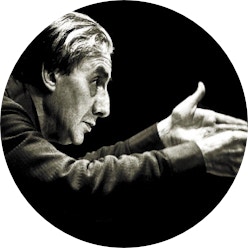
conductor
John Barbirolli
December 2, 1899 - London (England) — July 29, 1970 - London (England)
About
“Glorious John,” Vaughan Williams called him, and Barbirolli, with his deep love of English music, was second to none in his tireless promotion of works by Elgar, Vaughan Williams, Bax and others. Having rebuilt the Hallé Orchestra in wartime Britain, he went on to lead it for the best part of three decades, and brought his deep humanity and characteristic warmth and intensity of sound to a developing repertoire, championing the symphonies of Mahler and Bruckner when performances were still relatively rare. Long absent from the opera house, he returned to Italian opera on record late in life with a revelatory Madama Butterfly.
- 1911–17: Scholarship for violoncello at the Royal Academy of Music.
- 1917: First solo recital as cellist.
- 1917–19: Military service, during which he first conducts an orchestra.
- 1919: Returns to civilian life and plays in many different orchestras and ensembles.
- 1921: Soloist in an early performance of the Elgar Cello Concerto.
- 1926: Conducts the British National Opera Company on one of its provincial tours, making his operatic début with Gounod’s Roméo et Juliette.
- 1926–32: Conducts the BNOC and the Covent Garden Opera Company.
- 1933–36: Principal Conductor of the Scottish Orchestra (now Royal Scottish National Orchestra).
- 1937–43: Permanent Conductor of the New York Philharmonic in succession to Arturo Toscanini.
- 1943–70: Chief Conductor of the Hallé Orchestra; from 1968 Conductor Laureate for life.
- 1949: Knighted.
- 1961–67: Principal Conductor of the Houston Sympony Orchestra (Texas).
- 1961–70: Guest Conductor of the Berliner Philharmoniker.
- 1969: Elevated to Companion of Honour.

